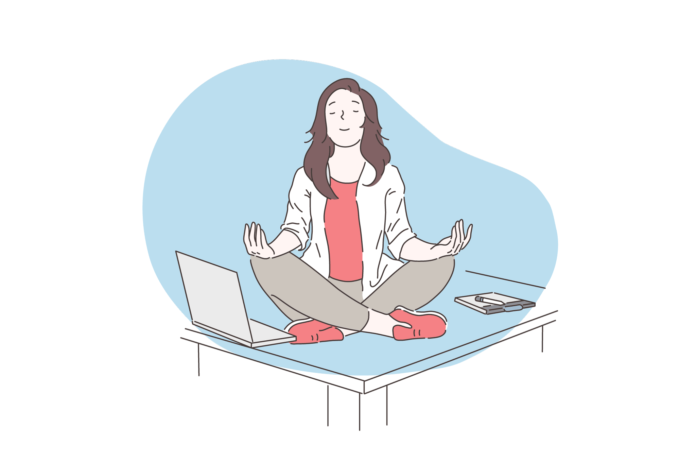Should my child take a mental health day?
As kids and teens get back in the flow of school, parents are learning about recent changes to the attendance policy. According to CNBC, “Under the state’s new law, students can have up to five excused absences in a three-month period, which can now be either a sick day or a mental health day.” News sources state, “The bill was signed into law by Oregon Gov. Kate Brown in June, 2022 as Oregon looks to combat high suicide rates among teens (CNBC).”
While many parents are familiar with statistics indicating the increased need for more mental health awareness and support amongst teens, parents are also wanting to make sure they’re adequately preparing their child and teen to face the stressors of the world and the concept of a mental health day might seem abstract and difficult to grasp. Although mental health days may not be a panacea to all of the stressors of adolescence, knowing when and how to implement them with your child or teen could go a long way in supporting their mental health.
What is a mental health day?
Have you ever called out sick to work the morning after a fight with your partner, or after being up all night worrying about a life event? Maybe you fibbed a physical illness, or weren’t sure how to communicate what was wrong, but you knew you needed some time to rest and recover before being productive would be feasible. Maybe you felt a sense of guilt or shame, or had the thought, ‘I should be able to handle this.’
While many of us know that rest and recovery are vital for long-term performance and preventing burnout, it can be hard (even as adults) to recognize our limits and advocate for our needs. Additionally, research shows that the process of recovery is often a paradox (Sonnentag, 2019). That is, when our brains and bodies are the most in need of rest and recovery, we’re the least likely to engage in restorative practices and prone to fall into a negative cycle of working longer hours, taking fewer breaks, and putting our nutritional and social needs on the back burner.
CNBC reported one of the bill’s intentions is to “change the stigma around mental health and help encourage kids to admit when they’re struggling.” Helping your teen to engage effectively with ‘mental health days’ could help build your child or teen’s capacity to non-judgmentally notice their feelings and respond skillfully through communicating their needs and engaging in self-care activities. These are skills that could help develop a healthy work/life balance and could help set your child or teen up for sustainable success long after the semester ends.
When could a mental health day be helpful?
First, if your child and teen states they don’t want to go to school, get curious about how they’re feeling and what factors might be contributing. Be aware that younger kiddos might need support with this process, and symptoms of stress and anxiety could show up as physical ailments, such as an aching tummy. Let them know you take their mental health as seriously as their physical health, so they don’t have to resort to lying to communicate how they’re feeling or what they need.
Taking a mental health day could be great after stress has been high and your child or teen is feeling exhausted. Maybe they just went through the emotional turmoil of a breakup, had a series of difficult exams, endured presenting in front of the class, or have been pushing themselves to go to school even though they’re having problems with their friends. Having an existing mental health challenge also might make the day-to-day more stressful and necessitate more recovery time.
When could a mental health day not be helpful?
Mental health days are likely not as helpful when they’re serving to avoid something your child or teen is anxious about. Although you definitely want to take feelings of anxiety seriously, studies show that avoiding the things that make you feel anxious actually makes anxiety worse over time (Chao, 2011). Also, it could be helpful to get curious if your child or teen might be facing difficulties that a day off from school won’t necessarily solve, such as an undiagnosed learning disorder, bullying, pervasive difficulty concentrating or focusing attention, or a mental health issue like depression. If school avoidance becomes a pattern, be curious if any of these issues could be present, talk to your child’s teacher, and consider seeking an evaluation from a mental health professional. Mental health days can be a great opportunity for your child or teen to recharge their battery, but certainly isn’t a substitute for treatment.
Tips for implementing mental health days
If you’re worried that your child or teen might try to take advantage of the potential for additional days off from school, be proactive and set boundaries around this time (Child Mind Institute). For example, if you know your teen has two tests and a late soccer game on the same day, it could be helpful to plan ahead and check in with your teen to see if the following day would be a good mental health day. Or maybe taking a ‘half-day’ to allow for extra sleep, instead of taking a full day off from school, could be more appropriate (Child Mind Institute). Other ways to set boundaries include agreeing to a set number of mental health days at the start of the semester and letting your child or teen decide when they would like to take them (Child Mind Institute). To help your child or teen make the most of their mental health day, consider talking through what their day might entail. And, as always, modeling good boundaries with work, as well as prioritizing your own self-care, are great ways to support yourself and reinforce positive mental health practices.
References
1) Scipioni, J. (2022) Students can now take ‘mental health days’ off from school- and here’s why. CNBC, 22 July. Available at: www.cnbc.com/2019/07/22/a-new-bill-allows-oregon-students-to-take-mental-health-days.html
2) Chu-Lien Chao, R. (2011). Managing Stress and Maintaining Well-Being: Social Support, Problem-Focused Coping, and Avoidant Coping. Journal of Counseling and Development, 89(3), 338- 348. doi.org/10.1002/j.1556-6678.2011.tb00098.x
3) Sonnentag, S. (2019). The recovery paradox: Portraying the complex interplay between job stressors, lack of recovery, and poor well-being. Research in Organized Behavior, 38, 169- 185. doi.org/10.1016/j.riob.2018.11.002
4) Jacobson, R. (2021) Should kids take mental health days? Child Mind Institute, 26 October. Available at: childmind.org/article/should-kids-take-mental-health-days/?utm_medium=email&utm_source=newsletter&utm_campaign=pub_ed_nl_2022-08-17&utm_content=should-kids-take-mental-health-days

























